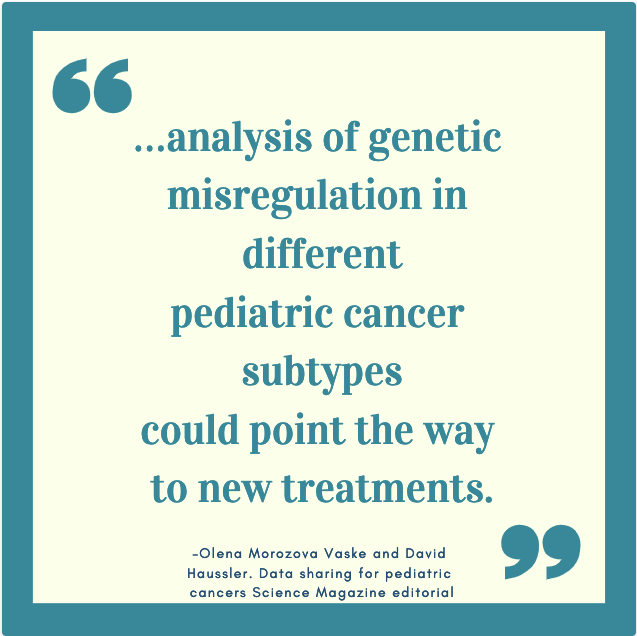Science Magazine | March 15,
Last month, in a conference call held by the U.S. Department of Health and Human Services and National Institutes of Health (NIH), it was revealed that a large focus of President Trump’s pledge to fund childhood cancer research will be genomic data sharing. Although the United States has only 5% of the world’s pediatric cancer cases, it has disproportionately more resources and access to genomic information compared to low-income countries. We hope that the spotlight on genomic data sharing in the United States will galvanize the world’s pediatric cancer community to elevate genomic data sharing to a level where its full potential can finally be realized.
Pediatric cancers are rare, affecting 50 to 200 children per million a year worldwide. Thus, with 16 different major types and many subtypes, no cancer center encounters large cohorts of patients with the same diagnosis. To advance their understanding of particular cancer subtypes, pediatric oncologists must have access to data from similar cases at other centers. Because subtypes of pediatric cancer are rare, assembling large cohorts is a limiting factor in clinical trials as well. Here, too, data sharing is the first critical step.
Typically, pediatric cancers don’t have the number of mutations that make immunotherapies effective, and only a few subtypes have recurrent mutations that can be used to develop gene-targeted therapies. However, the abnormal expression level of genes gives a vivid picture of genetic misregulation, and just sharing this information would be a huge step forward. Using gene expression and mutation data, analysis of genetic misregulation in different pediatric cancer subtypes could point the way to new treatments. [Read more …]


Recent Comments